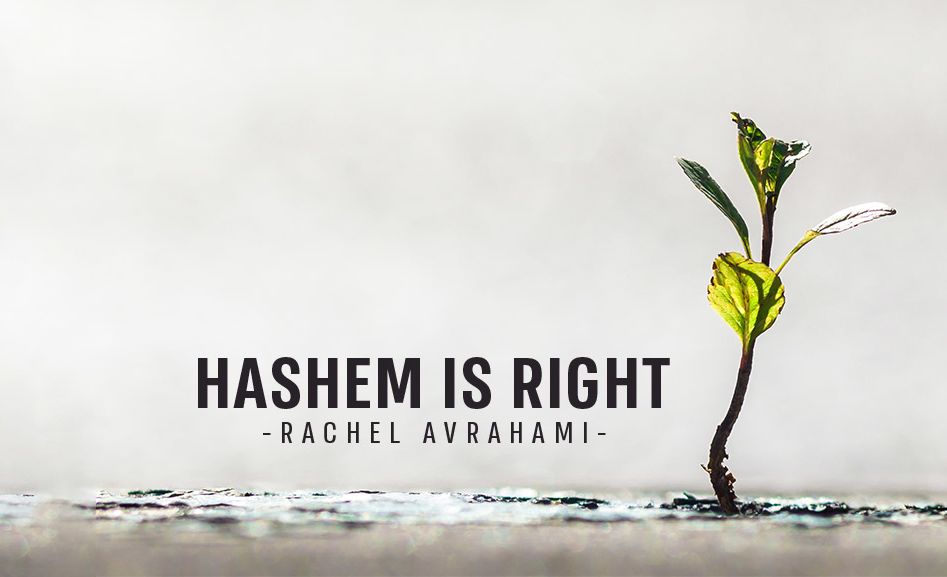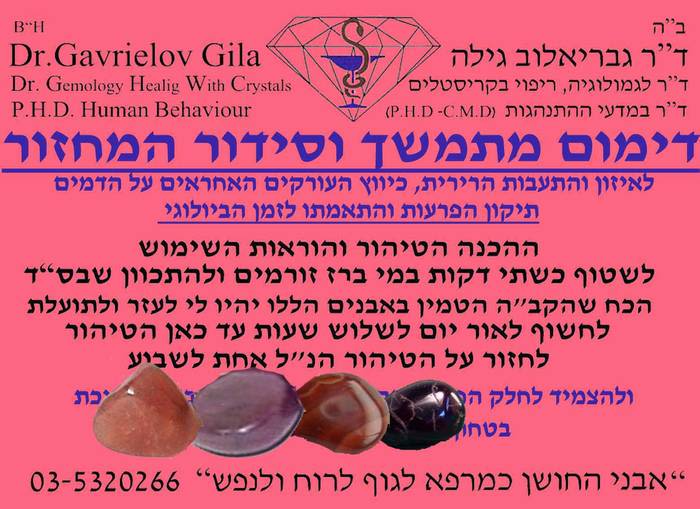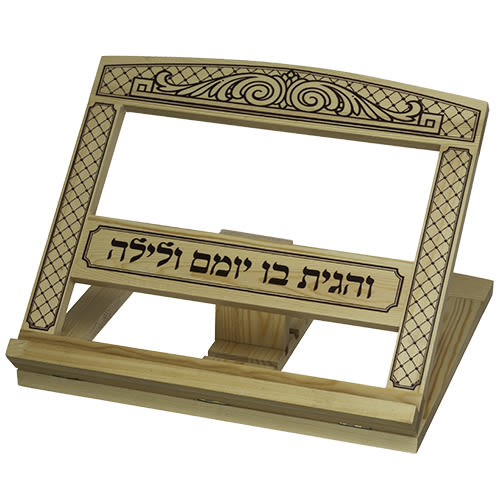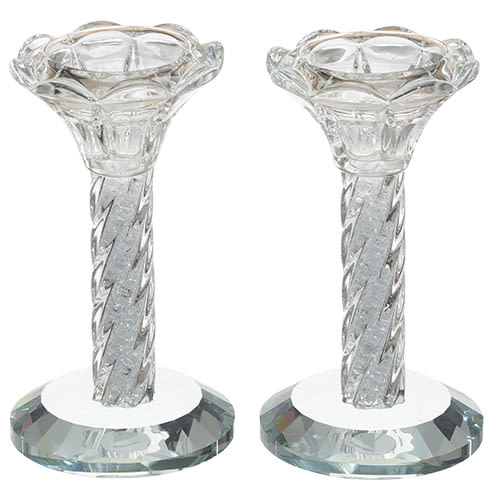
A Dangerous Circle
It was out of the question to remain where they were. More and more youths were joining the mob. They were madly racing towards the car...

When my children were small, they loved listening to a tape about a Yerushalmi rabbi who traveled to Egypt to collect money for the starving yishuv. Afraid to travel alone through the desert, he joined a caravan and paid the driver extra so that would stop the caravan for Shabbos.
As the sun was about to set on Friday afternoon, the rabbi demanded that the driver honor his agreement and stop the caravan. Instead, the driver laughed at the Jew’s naiveté and informed him that he could remain alone in the wilderness if he didn’t want to travel on Shabbos.
The rabbi took his belongings and set up camp.
Friday night, the rabbi saw several huge lions approaching. With supreme concentration he recited kiddush, positive that it would be his last. Instead, the lions encircled him and watched him eat his Shabbos meal. They were guarding him from the wild animals of the desert.
This story had always struck me as unbelievable, until one afternoon a friend called to tell me about her chol hamo’ed outing. Her words tumbled over each other as she described how ruthless Arab terrorists had encircled her and her family – to protect them from the encroaching mob. All names and identifying details have been changed.
* * *
Mimi and Chaim David were planning to spend the first day of chol hamo’ed Sukkos visiting friends and relatives, including their cousins in Mitzpeh Yericho, a small community overlooking the Arab city of Jericho. Their cousins had recently moved into a new home and had invited their friends and relatives – including the Davids – to a Chanukas Habayis, a housewarming.
Before leaving Yerushalayim, the Davids stopped in to visit a childhood friend of Mimi’s – Shulamis. When Mimi mentioned that they were heading to Mitzpeh Yericho, she noticed a shadow of worry cross Shulamis’ face.
Mimi brushed off her friend’s concerns. “We’ll be fine,” she laughed.
But Shulamis was still worried.
As they were leaving, Shulamis warmly took Mimi’s hand and wished her a safe journey. For several minutes, she heaped heartfelt Yiddish brachos on Mimi and her family, giving her a blessing that Hashem should guard them and that they should return home safely.
Moved by the deep concern reflected in Shulamis’ brachos, Mimi smiled, squeezed Shulamis’ hand and responded “amen.”
Chaim insisted that before setting out, Mimi call their cousin, Moshe, for precise directions. “We certainly don’t want to get lost in the territories,” he pointed out.
Armed with a homemade map based on their cousin’s directions, the family drove past the suburb of Maaleh Adumim toward Mitzpeh Yericho.
The soldiers nonchalantly waved them on at the army checkpoint. Soon after that, they noticed that the roads were broken and that the signs were only in Arabic.
Mimi was worried. Chaim phoned their cousin to inform him that they were lost.
The cousin asked them to describe what they saw around them.
Chaim answered that the road was in a state of disrepair and that all signs were in Arabic.
The cousin laughed. The Davids had moved to Israel just a few months before, and it was obvious to him that they were a bit edgy. “Don’t worry,” he smiled into the phone. “You’ll see another checkpoint soon. The road goes through an Arab village, and as you can see, it’s in the process of being repaired.”
A few minutes later, they passed another checkpoint, just as Moshe had said they would. Chaim slowed down and waved to the soldiers, but the soldiers were so busy conversing that they didn’t notice the Israeli car driving past.
When the Davids passed that checkpoint, they were entering the PA controlled Kalandiya refugee camp, a hotbed of terrorism, commonly known as South Ramallah.
Mimi was surprised that after passing this checkpoint the signs were still in Arabic. According to their cousin’s directions, they should have left the Arab village by now. They soon passed two enormous buildings with large English signs – one for the Palestinian Authority’s Department of Health, the other for the PA’s Department of Education.
Mimi noticed that their nine-year-old daughter, who was sitting in the back seat, was nervous. She quickly allayed her fears, pointing out that they had passed the second checkpoint, just as their cousin had said they would.
They continued driving toward the city of Ramallah. After passing an Arab marketplace, they noticed an army compound ahead. They were about to stop at the compound to ask for directions when they noticed that there was a Palestinian flag hanging on the flagpole.
The previous year, two Israeli reserve soldiers — Vadim Norzitch and Yosef Avrahami – lost their way in Ramallah. They had asked the Palestinian police to help them return to Israeli territory and were brutally murdered by an angry mob that included – of course — several Palestinian policemen.
The Davids continued driving through what they now realized was obviously Arab territory, while silently praying that their car would remain invisible. Eventually the road ended. Ahead of them they could see Palestinian soldiers engaged in combat training. “I guess Moshe was wrong,” Chaim commented, half to himself. “We had better turn back.”
The return trip was much slower. They had to stop in front of the Arab marketplace to allow people to cross the street. They tried to remain as unobtrusive as possible, while praying that no one would notice them. When they finally arrived at the checkpoint, they discovered a long line of cars ahead of them. It seemed as if every Arab in the camp was trying to get into Israeli territory that afternoon.
Chaim noticed a road running parallel to the line of cars and decided to see if they could take it to the checkpoint. They drove along the parallel road for almost a mile before several enormous boulders made it impassable. They had no choice but to backtrack and return to the line at the checkpoint.
Mimi opened her cell-phone and dialed 100 – the emergency number– and explained their predicament. The officer on duty told them to wait their turn to reach the checkpoint — and then hung up on them.
Chaim motioned to an Arab cabdriver. In broken Hebrew, he asked where they were and how to get back to Israeli territory. The startled cabdriver repeated, “Ramallah. Arafat. Ramallah. Arafat.”
Mimi stared at him in disbelief. “No, no,” she responded, also in broken Hebrew. “That can’t be. No, no.”
The driver jumped into his car. “Follow to me,” he said, speaking English now. “I help you.” He drove away from the checkpoint and toward the PA army compound.
Chaim followed. But as they approached the PA compound, he felt increasingly uneasy about following an Arab into the lion’s den. He turned the car around and returned to the line of cars waiting to exit Ramallah.
They were still waiting on the line when a well-dressed gentleman approached them and, in perfect Hebrew, said, “What are you waiting here for? You’ll be here until ten o’clock tonight. Do yourself a favor. Turn around and go to the right. You’ll come across an Israeli army patrol and they’ll be able to help you get back to Israel.”
He seemed sincere. And besides, they felt like sitting ducks and were eager to find a way out of their present predicament. Chaim made a U-turn and took the road to the right, but there was no army patrol. Instead, they found themselves in a maze of narrow alleyways, which seemed to lead nowhere. A group of teenage boys noticed them and began throwing rocks at their car. Chaim sped back to the checkpoint. When he looked into his rearview mirror, he saw that the mob of boys was getting larger. They were chasing them. Instead of rocks, they were carrying boulders.
It was out of the question to remain where they were. More and more youths were joining the mob. They were madly racing towards the car, thirsting for action; thirsting for blood.
Chaim noticed a road leading off to the right and sped away. A block and a half later, however, the road ended.
Chaim tried to make a U-turn, but the road was blocked by a group of about twenty-five Arab men, walking menacingly toward them. If he wanted to return to the checkpoint, he would have to run over these men. If he did, the Arabs would lynch both him and his family.
Chaim stopped the car but kept the motor running. He wanted to be able to escape.
Mimi stared in horror at the approaching men. “Oh no,” she whispered. “I can’t believe this is really happening.” Their nine year old daughter was trembling uncontrollably. They could hear her teeth chatter.
Mimi took out a sefer Tehillim, but she was so frightened, no words came out.
An Arab man, radiating kindness, ran over to Chaim’s window. “My name is Dr. Sami Asad,” he said. “Come into my house and I’ll protect you. We’ll help you get out of here.”
Meanwhile, the row of Arab men surrounded the car. They reassured the Davids that they were not about to harm them. “We just want to protect you from the boys who are trying to stone you,” they stated. But their eyes betrayed their intense hatred.
A large group of younger Arabs had gathered behind the older men, and they were thirsting for action. At one point, a few boys darted to the car and tried to put something under one of the wheels, but a middle-aged woman shooed them away.
A few minutes later, the middle-aged woman, who Mimi realized was the doctor’s wife, approached the car and said, “It’s impossible to control the young people. Come into our house. We’ll protect you.”
The Davids politely refused. “Thank you,” Chaim answered. “But we prefer to remain where we are. I’m sure you understand.”
“I have a friend in Tel Aviv,” the doctor’s wife persisted. “She speaks English. I’ll phone her and you can speak with her.”
The doctor’s wife dialed her friend’s number.
“My name is Dafna, and I’m Jewish,” they heard an anonymous voice speaking over the cell phone. “Dr. Asad and I work together to save lives. If you want to remain alive, I recommend that you do whatever the doctor tells you.”
Mimi took the phone. “Thank you for your concern,” she began politely. “But since I don’t know them and I don’t know you, we’re staying in this car.”
Chaim kept on thinking about the two Israeli soldiers who had found themselves in a similar predicament the previous year. They were lynched on October 12, 2002. Now it was October 12, 2003.
Mimi noticed two of the Arab men quietly slip away. She wondered if they were going to bring reinforcements – with weapons. She later learned that they had gone to the Israeli checkpoint to report that an Israeli family had somehow gotten into the camp. The guards, however, assumed the Arabs were trying to bait them to enter the camp and then ambush them.
At that point, Mimi’s relative, who was in the back seat next to Chaim and Mimi’s daughter, called the cousin in Mitzpeh Yericho. Crying uncontrollably, she said, “We’re stuck in an Arab village. We’re surrounded by Arabs. They’re going to kill us. I’m telling you, they’re going to kill us.”
Mimi realized that her daughter was on the verge of hysteria. With a calmness she did not feel, Mimi said, “Don’t worry. This is Eretz Yisrael. We’re not going to die.”
Mimi’s words resonated throughout the car, dissipating the encroaching cobwebs of hysteria. They infused everyone, including Mimi, with hope. She really believed that they would survive. She only wondered how.
Meanwhile, the cousin in Mitzpeh Yericho raced to his car to rescue them. Then he stopped in his tracks. What could he do in an Arab village, against a gang of Arab terrorists?
He ran back to the house to speak with one of his guests, Eitan, a member of the army’s anti-terror unit.
Eitan got on the phone and calmly asked Chaim to explain how he had gotten to his present location. He patiently listened to Chaim and then responded, “I know exactly where you are. I’m calling the army.”
Eitan phoned his commanding officer and reported that there was a Jewish family stuck in the refugee camp. “Their lives are in danger. They need help NOW!”
The army commander phoned the checkpoint to pass on the report. The soldiers were shocked -– the two Arabs had been telling the truth.
The Arab men surrounding the car started closing in on the Davids. Every once in a while, one of the men would smile at their nine-year-old daughter and the young woman next to her — while making a threatening gesture.
Meanwhile, Dr. Asad kept on pleading with the Davids to leave the car and join him in his house. “I want to help you,” he kept on repeating. “I’m a doctor; I save lives.”
Mimi rolled down the window and said in a loud, firm voice, so that all the men could hear, “I really believe that you’re being straight with us. I appreciate that. But I think that you must understand that we cannot leave the safety of our car.”
The Arabs smiled.
One curly haired Arab came over and spoke directly into the half-inch of open window. “If you move over, and let me drive, I’ll take you to the checkpoint,” he said. “No one will stone you if I’m driving. I’ll get you out of here.”
One of the Arabs brought a bottle of water and a clean glass, and offered the Davids a drink. Chaim opened the window to take it from their hands. Mimi poured herself a glass of water and recited a brachah. It occurred to her that this might be her last one.
A few minutes later, a soldier appeared outside Mimi’s window. “Are you a Palestinian or an Israeli?” Mimi asked.
“I’m from the IDF.”
“What’s your name?” Mimi asked in disbelief.
“Hillel.”
Mimi’s eyes filled with tears. She noticed that their rescuer was fully armed.
Hillel spoke into the half-inch of open window. “Reinforcements will arrive in a few minutes. We’ll get you out of here.” Most of the Arab men encircling the car silently slipped away. The doctor and his wife remained.
The soldiers informed the Davids that they would be escorting them back to Israeli territory on foot. It was too dangerous to bring an army vehicle into the refugee camp. The curly haired Arab who had offered to drive them to the checkpoint, now offered to drive their car to the checkpoint. The soldiers told them to let him.
As the Davids got out of their rental car, five Arabs jumped inside. Mimi was sure that she would never see the car again.
The Davids walked through a rocky field and climbed over a broken fence before entering a waiting army jeep. When they arrived at the army base, they were shocked to discover that their car had already arrived.
At the debriefing, one of the soldiers asked the Davids how they had managed to get into the refugee camp. Chaim explained that they had waved to the soldiers, and that there had been no reaction. “So we assumed that it was all right for us to continue,” he said.
“I don’t want anyone to get in trouble on our account,” Mimi interjected.
“Lady,” the soldier responded, without even a hint of a smile, “you almost died. Don’t worry about getting anyone in trouble.”
Mimi suddenly understood that their survival was a miracle.
The Davids later learned that the leader of the Arab men who had surrounded their car was the Tanzim terrorist leader Jamal Abu Lele. Known for his bloody attacks against innocent Israeli civilians, Abu Lele told reporters that his efforts were a simple humanitarian gesture, typical of traditional Arab hospitality. “We support the continuation of the Intifada," he said, "but this family's mistake is unrelated. We are talking about innocent civilians, and it is forbidden to harm them.”
One of the other men protecting the David’s car was a wanted member of the Al-Aqsa Martyrs’ Brigades. He told reporters, “We weren't armed, but residents of the camp know us, and they follow our instructions.”
If it is Hashem’s will, a lion will protect a rabbi, and terrorists will guard a Jewish family.
(More of Debbie Shapiro's stories can be found in Bridging the Golden Gate)










Tell us what you think!
Thank you for your comment!
It will be published after approval by the Editor.